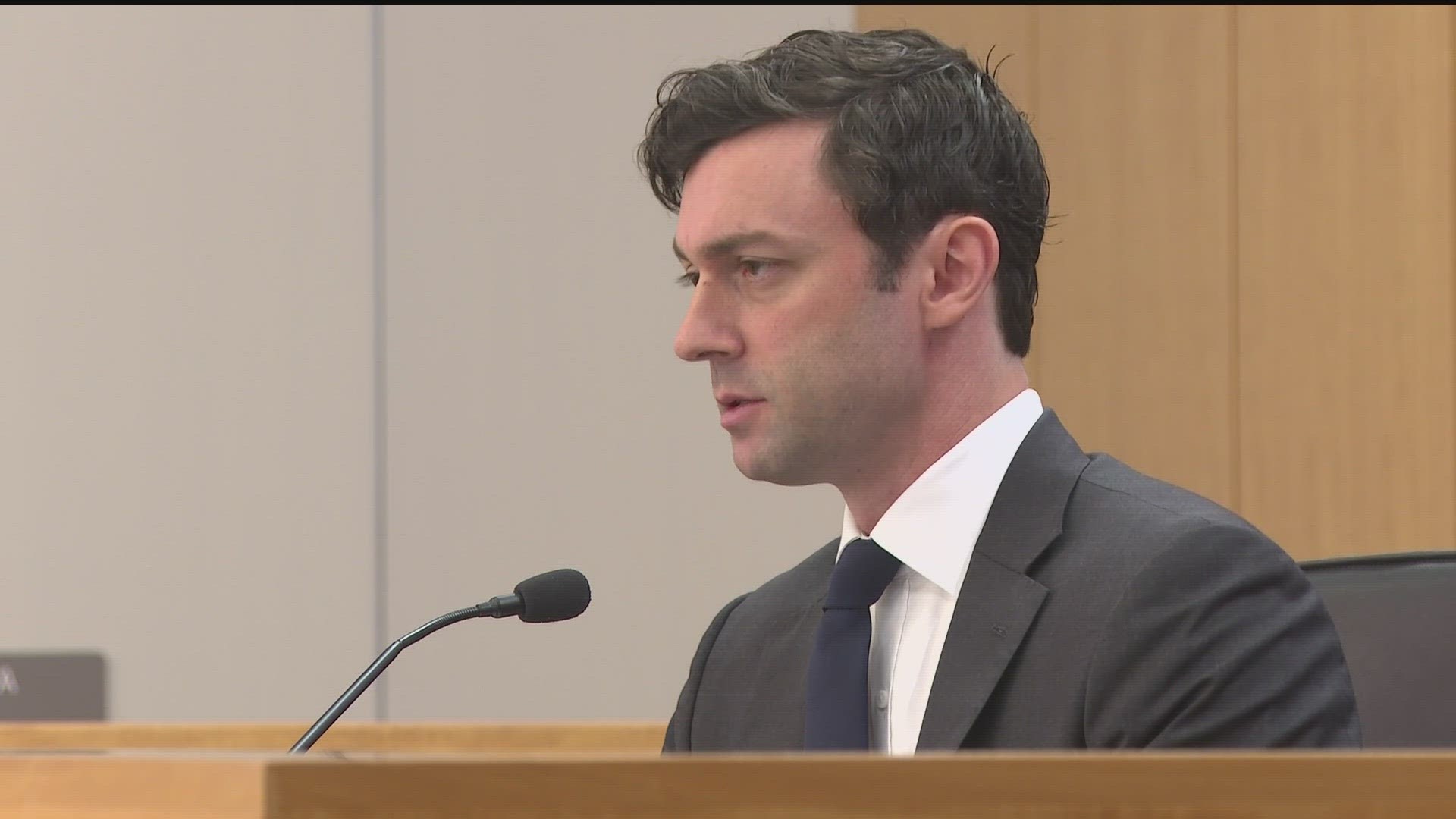ATLANTA — U.S. Senator Jon Ossoff (D-GA) entered a room inside the Georgia State University Law School Monday morning, set to hear witness testimony from three juvenile court judges.
“The case workers on the frontline doing this work are under-resourced, in many cases undertrained," Ossoff said. "The overwhelming majority, it is my impression, are working hard to try and do right by some of the most vulnerable kids in our state.”
Understaffing at Georgia's Division of Family and Children Services (DFCS) is tied to larger issues, says Gwinnett County juvenile court judge Nhan-Ai Simms.
"DFCS executive leadership suggested to a room full of juvenile court judges that we prolong a child's time in jail so DFCS can have more time to find a foster placement," Simms said. "We have a false sense of confidence in the effectiveness of our system, but the problems suffered by children and families still persist.”
Simms said kids in juvenile detention centers don't get the proper counseling and medical care they need and, in many cases, experience more trauma that worsens their condition.
“It’s widely known that DFCS has been under immense pressure to address what’s been a series of public relations crises," Simms said. "What I’ve seen is that pressure leading to the neglect or deliberate avoidance of the most complex and heart-wrenching cases, cases triaged to boost statistics and then closed prematurely in misleading triumph.”
Paulding County juvenile court judge Carolyn Altman said that just because there's a lack of foster parents does not mean kids should stay locked up in detention centers, hotels or DFCS offices.
Altman said there were too many short-term fixes, a lack of adequate care for those with special needs and claims that too many kids are placed with a relative who can't support them.
"Children could go from the frying pan into the fire," Altman said. "They may be left with people who may not be safe. They're not screened or vetted or approved by DFCS. There's no criminal background checks or drug screens, certainly no extensive training as a qualified foster parent."
Altman said Georgia needed to find more foster families but advised DFCS also bears responsibility for ignoring crucial cases with kids and their safety at the center. This hearing came on the heels of recent findings in a report that said hundreds of foster children in the custody of the state were missing. That same report found that DFCS failed to properly respond to threats to children's safety 84% of the time.
"It’s not about punishing DFCS," Altman said. "It’s about supporting the work, about caring for kids. That’s the heartbreaking thing. If we get this wrong, it affects children. So we should get this right and help children. The system needs help."
Wenona Belton, a recently retired juvenile court judge in Fulton County, said foster children need more in-person access to resources and services. She said the current foster system was not working as is, noting challenges and delays in obtaining specialized assessment and treatment, identifying reliable service providers and mischaracterizing too many kids as difficult and uncooperative.
"Frontline staff are overwhelmed, underpaid, suffer from inadequate training and burnout," Belton said.
Belton said there was a lack of creativity in court orders, too many case managers were working in silos, and DFCS staff was placing too much emphasis on policy and quickly closing cases rather than focusing on safety and protection. Belton said the child welfare agency should tackle the root causes of children ending up in the foster system, including poverty, behavioral health challenges and substance abuse.
Melissa Carter, a clinical professor of law at Emory University, is listening to the series of hearings on Georgia's foster system and hopeful that solutions come out of them.
"We risk here a broader sweep in putting too many children into foster care," Carter said. "What we really need is a robust, thoughtful, focused conversation where we have innovations and creativity and a competition of perspectives to really develop new and different and additional solutions. Ultimately, these are questions of safety and well-being. So children who we misasses and don’t understand their safety needs may be left in an unsafe situation.”
DFCS did not immediately respond to the allegations and multiple requests from 11Alive for a statement in the wake of these hearings. Ossoff said other senators could submit questions as part of the hearings through next Monday.

